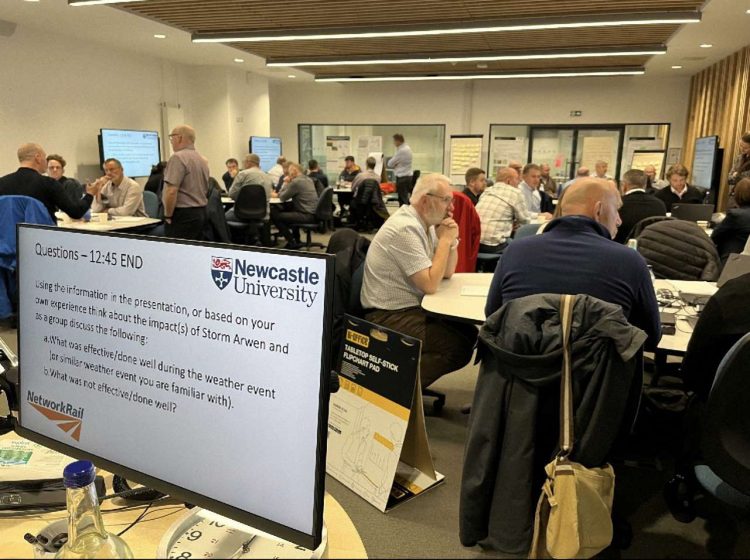In order to provide passengers with a safer and more reliable service during adverse and extreme weather conditions, Network Rail has established a Weather Academy pilot programme in partnership with Newcastle University, the Meteorological Office, and MetDesk.
The team was set up following recommendations from world-renowned meteorology expert Dame Julia Slingo, Professor Paul Davies from the Meteorological Office, and Professor Hayley Fowler from Newcastle University on ways in which the railway could better manage weather and climate risk.

Network Rail is working closely with industry experts so that railway workers with the appropriate knowledge can apply their skills to improve resilience against adverse weather conditions so passenger and freight trains can continue to operate safely and reliably.
Network Rail has teamed up with Newcastle University, Met Office, and MetDesk to run a Weather Academy pilot programme, bringing together rail operations staff, asset engineers, and meteorology experts to identify ways of delivering a safer, more reliable service for passengers during adverse and extreme weather.
By working through practical case studies, interactive tuition, and scenario-based exercises, Network Rail staff have looked at ways of improving the management of weather risk. That will enable them to acquire the knowledge and skills necessary for improving how risks are managed and their effects are alleviated. Further workshops are being planned to take place next year.
Network Rail has committed to running a safe, affordable and more reliable service for passengers during adverse and extreme weather as a key pillar of its' wide-reaching Environmental Sustainability strategy.
Climate change is causing more frequent and extreme weather conditions, which increasingly affects the railway's ability to run safely and on time. The effect of improving workers' knowledge on how to counteract these risks, will allow resilience to be built into the way that in which railway assets are designed, built, operated, and maintained. That in turn will be important in keeping the railway running in adverse conditions.
Following last summer's unprecedented weather conditions, last July Network Rail launched a new extreme weather taskforce was launched, which will consider four key areas. An independent expert in their field will lead each area. Three of the areas will concentrate on obtaining information from other countries so that they can make comparisons with international rail networks more used to dealing with extreme heat and extremes of temperature.
Dame Julia Slingo, the lead author of the Weather Advisory Task Force report, said:
“This is a landmark event. This is the first time, in the transport sector at least, that we got people together to think about how you manage the considerable risks to operations that you face from adverse weather and related hazards.”
Matthew Shelton, Network Rail Asset Engineer said:
“I found the workshop illuminating, fascinating, and extremely useful. The level of information provided enhanced my knowledge and broadened my understanding of several critical areas of the business. I will be a more effective, more aware and more empathic risk manager as a result.”